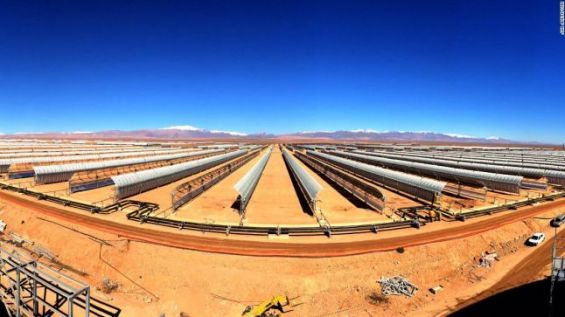Morocco’s Nationally Determined Contribution is rated «1.5°C Paris Agreement compatible» by the Climate Action Tracker (CAT), an independent science-based assessment, which tracks the emission commitments and actions of countries. According to the data provided by the report on the 6th of November, Morocco is one of the best performing countries that managed to achieve the Paris agreement recommendations set in September 2016.
Morocco and Gambia are topping the second category entitled «1.5°C Paris Agreement compatible». The tracker ranks countries based on six lists namely, Role Model, 1.5°C Paris Agreement compatible, 2°Compatible, Insufficient, Highly Insufficient, and Critically Insufficient. According to Climate Action Tracker, countries’ performances are studied based on «an up-to-date assessment of individual national pledges, targets and INDCs and currently implemented policy to reduce their greenhouse gas emissions».
Morocco's commitments
Morocco has promised, after ratifying the Paris agreement on 21st of September 2016, to submit its Nationally Determined Contribution (NDC). The kingdom’s target was to reduce Greenhouse Gases (GHG) emissions including land use, land use change and forestry by 17% below business as usual (BAU) by 2030. The country also declared that it would decrease emissions by 42% below BAU by 2030 with sufficient international support.

Based on the same tracker, «The '1.5°C Paris Agreement compatible' rating indicates that Morocco’s climate commitment in 2030 is consistent with holding warming well below 2°C, and limiting warming to 1.5°C.»
Implemented targets
The North African Kingdom, according to the report, is very close to meeting its unconditional NDC targets thanks to its current policies targeting the «extension of solar, wind and hydro energy».
To rank Morocco’s performance, the Climate Action Tracker took into consideration Morocco’s NDC submission which included detailed information on activities currently implemented and planned. For example the country has developed a National Energy Strategy to extend the production capacity for renewable electricity and increase the share of installed electricity production capacity from renewable sources to 42% in 2020 and to 52% in 2030.
Other countries have managed to meet some of its Nationally Determined Contributions such as India Philippines and Ethiopia rated 2°Compatible by the report. The European Union countries, Canada, Brazil, UAE and Switzerland’s targets were insufficient while China, Japan, South Africa and South Korea’s NDCs were Highly Insufficient.
The least performing countries are Chile, Russia, Saudi Arabia, Turkey and the USA rated critically insufficient ahead of Gabon and Nepal described as Basic.
For the record, the report has been released as the world’s nations are meeting for the 23rd annual «Conference of the Parties» (COP) held in Bonn Germany from 6-17 November.




 chargement...
chargement...












